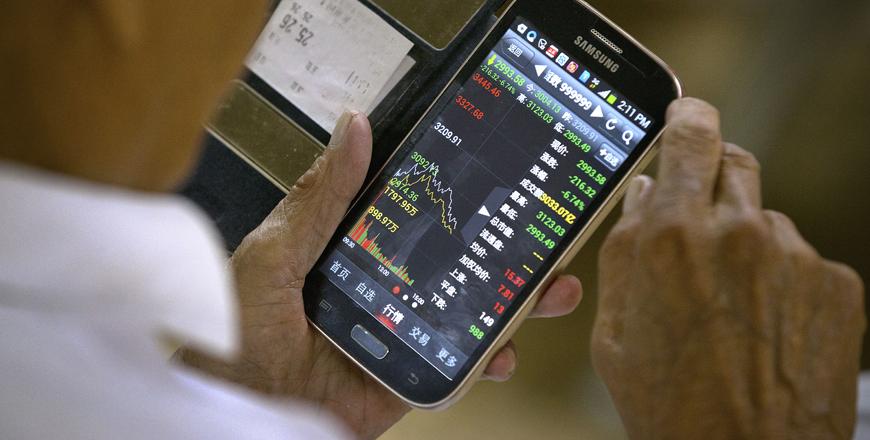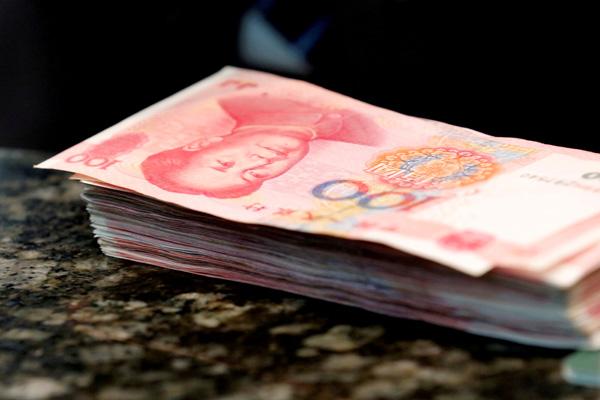You are here
China foreign exchange reserves in record fall as Beijing tries to calm markets
By Reuters - Sep 07,2015 - Last updated at Sep 07,2015
SHANGHAI/BEIJING — China's foreign exchange reserves posted their biggest monthly fall on record in August, reflecting Beijing's attempts to halt a slide in the yuan and stabilise financial markets following its surprise move to devalue the currency last month.
China's reserves, the world's largest, fell by $93.9 billion last month to $3.557 trillion, central bank data showed on Monday.
The drop left market watchers questioning how sustainable China's efforts to support the yuan are, as capital flows out of the country due to fears of an economic slowdown and prospects of rising US interest rates.
"Frequent intervention will burn foreign reserves rapidly and tighten the onshore market liquidity," said Zhou Hao, senior economist at Commerzbank in Singapore.
The offshore yuan weakened following the data release to trade at a record discount to the onshore rate, suggesting investors believe the official rate is being kept too high.
There was relief, though, that the dip in reserves had not been larger, with some commentators predicting in the run-up to the announcement that the drop could be as much as $200 billion.
The decline in reserves has quickened following China's near 2 per cent devaluation of the yuan on August 11, which stoked fresh concerns about the economy and heavy selling of the currency.
China was so surprised by the reaction to the devaluation that it is likely to keep the yuan on a tight leash in the near-term to head off fears of a global currency war, policy insiders have told Reuters.
Markets still nervous
Chinese policymakers are now determined to show their financial markets are back to normal, after the devaluation of the yuan, or renminbi, coupled with wild swings in its stock markets caused jitters in markets around the world.
China's Central Bank Governor Zhou Xiaochuan told financial leaders from the world's 20 biggest economies over the weekend that Chinese financial markets had almost completed their correction after a steep run up in stock prices in the first half of the year.
Zhou's comments, coupled with pledges from regulators to deepen financial market reforms, had limited impact in stabilising China's stock markets on Monday, which closed before the release of the reserves data.
The CSI300 index of the biggest stocks in Shanghai and Shenzhen closed down 3.4 per cent, while the Shanghai Composite Index was 2.5 per cent lower, in the first day of trading following a four-day long weekend.
Chinese equity markets have fallen 40 per cent since mid-June, despite the authorities unleashing a volley of policy responses to try and stem the falls.
On Monday, China unveiled changes to taxes on share dividends aimed at encouraging longer term investment as opposed to short-term speculation. The measures are due to come into effect on Tuesday.
Hours earlier, the Shanghai Stock Exchange said the Shanghai and Shenzhen Stock Exchanges and the China Financial Futures Exchange planned to introduce a "circuit breaker" on the CSI300 index to stabilise the market.
The exchanges are seeking comment from market participants before September 21 on proposals to suspend trade in the country's equity indexes, if it moves sharply either way.
There is no guarantee that Beijing will adopt the proposals.
However, while seeking to reduce volatility in equities, if enacted, they could prove a disincentive to short-term investors by restricting the market's potential to rise as well as fall.
Initial reaction among economists was sceptical.
"What's the point? It merely delays the pace of the market fall," said Liu Ligang, China economist at ANZ in Hong Kong.
Economic worries
Last week, the China-based investment community was put on edge following media reports that the China chairwoman of Man Group Plc., Li Yifei, had been taken into custody to help with a police probe into stock market volatility.
However, Li told Reuters on Monday that the reports were incorrect, saying she spent last week in industry meetings and then took a 5-6 day trip to meditate.
China's government is also pushing on with attempts to ease concerns about the country's slowing economic growth.
Finance Minister Lou Jiwei was quoted in a central bank statement as saying that central government spending would rise by 10 per cent this year, up from the 7 per cent growth budgeted at the start of 2015.
A string of soft economic data has made it harder for Chinese regulators to bring stability back to their markets, as fears grow of a hard landing for the world's second-biggest economy.
Earlier on Monday, China revised down its reading for growth in 2014, saying the economy expanded by 7.3 per cent, a notch below the previous estimate of 7.4 per cent.
This year, the economy is headed for its slowest expansion in 25 years, and concerns have been building that it may miss the official growth forecast of around 7 per cent.
However, analysts say increased government spending, combined with five interest rate cuts since last November, mean that risk has diminished.
"We remain of the view that the considerable monetary, fiscal and macro prudential policy stimulus already in place and expected will put full-year growth in the 'about 7 per cent' range," said Tim Condon, head of research for Asia at ING Bank in Singapore.
China's top economic planning agency tried to back up that view, saying on Monday that the country's power usage, rail freight and property market have all shown improvements since August, indicating the economy is stabilising.
"The economy is expected to maintain steady growth and we are able to achieve annual economic growth target," the National Development and Reform Commission said.
Related Articles
SHANGHAI — China's yuan hit a four-year low on Wednesday, falling for a second day after authorities devalued it, and sources said clamour i
SHANGHAI/BEIJING — China's central bank cut interest rates and lowered the amount of reserves banks must hold for the second time in two mon
SHANGHAI — China's central bank set the yuan's central parity rate weaker than 6.7 to the dollar for the first time in six years on Monday,













